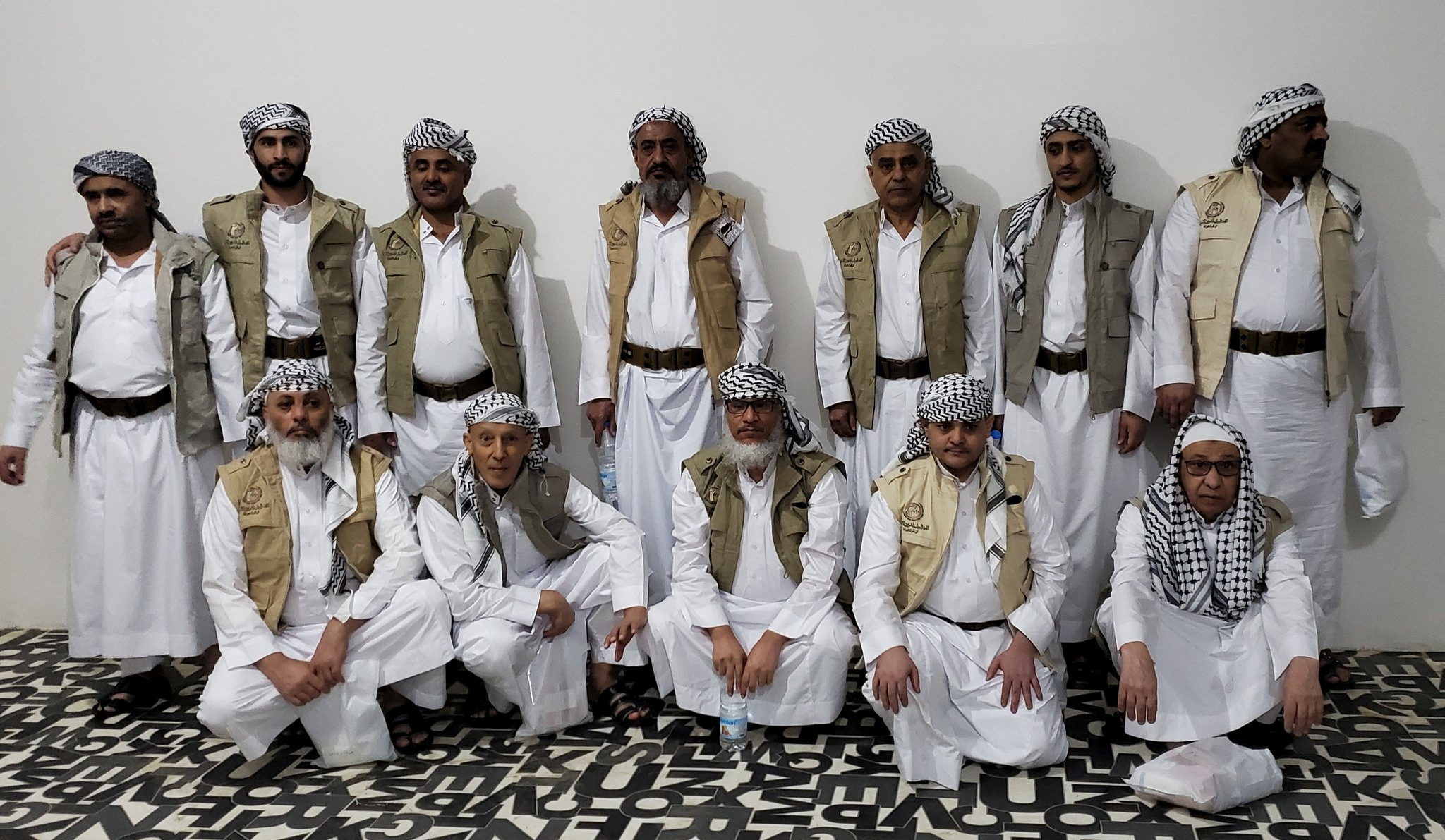
The release and swap of nearly 900 detainees by the two sides in Yemen’s conflict has begun, a significant confidence-building measure as peace talks between Saudi envoys and Houthi rebels intensify.
The International Committee of the Red Cross (ICRC), which is managing the prisoner exchange, said on Friday its planes would be used to carry the released detainees between six cities in Yemen and Saudi Arabia.
“With this act of goodwill, hundreds of families torn apart by conflict are being reunited … Our deep desire is that these releases provide momentum for a broader political solution,” said Fabrizio Carboni, the ICRC’s regional director for the Near and Middle East.
In Yemen’s capital, Sanaa, Talal al-Nazili was elated to see his brother again.
”Today is a victorious day,” he said. “The day when my brother was released after seven years. We never lost hope and I do not feel the ache I had in my heart, it feels clear now.”
Warring parties agreed at negotiations in Switzerland last month to free 887 detainees and to meet again in May to discuss further releases. The deal was overseen by the United Nations envoy for Yemen, Hans Grundberg, and the ICRC.
Negotiators had hoped for an “all for all” deal involving all remaining detainees during the 10 days of talks.
The negotiations were the latest in a series of meetings that led to the release of prisoners in 2022 and 2020 under a UN-mediated deal known as the Stockholm Agreement.
Full prisoner exchange
Speaking from Sanaa, Houthi affairs analyst Hussain al-Bukhaiti told Al Jazeera he expected a flurry of prisoner swaps in the coming months.
“The visit of the Saudi ambassador to Sanaa has moved this [issue of] prisoner exchanges,” said al-Bukhaiti, in reference to Saudi ambassador Mohamed al-Jaber’s trip with a delegation from Oman on Monday in an attempt to reach a comprehensive political solution in Yemen.
“Sanaa has sent a clear message to Saudi Arabia that it is ready for a full prisoner exchange on both sides, which could be about 15,000 prisoners. If this prisoner exchange [Friday’s] goes as planned, I believe after Ramadan another deal will be struck to release all prisoners,” al-Bukhaiti said.
Political analyst Moneef Ammash Alharbi told Al Jazeera the prisoner swap was the start of a more comprehensive peace plan between Yemen’s warring parties.
“It [the prisoner exchange] is quite a significant step, deepening the mutual trust between the legitimate government [of Yemen] and the Houthis. It is the way toward a peace plan in Yemen,” said Alharbi.
A Yemen peace plan would consist of three phases with the first involving “a truce and the re-opening of airports, roads and seaports”, he said.
“The second phase would involve a political dialogue to reach an agreement among all the political parties. The third phase would be a transitional period that will last for two years,” Alharbi said.
The conflict in Yemen, which has killed tens of thousands of people and left millions hungry, has widely been seen as a proxy war between Saudi Arabia and Iran.
A Saudi-led coalition intervened in Yemen in 2015 after the Iran-aligned Houthis drove the internationally recognised government from Sanaa in 2014.
Riyadh and Tehran last month agreed to restore diplomatic ties severed in 2016, raising hopes Yemen’s peace process will see progress.
A Saudi delegation on Thursday concluded peace talks in Sanaa with the Houthi movement, whose officials cited progress and said further discussions were needed to iron out remaining differences.







